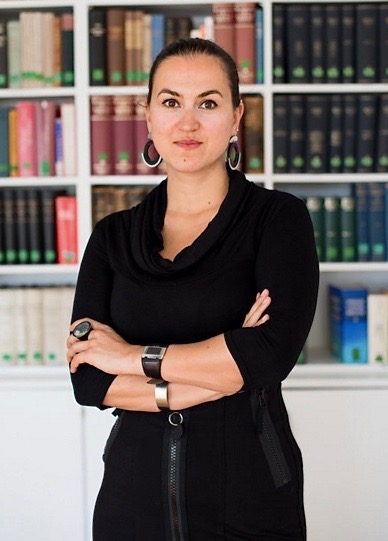
I am a Postdoctoral Researcher at the Ludwig-Maximilians-University of Munich and the University of Augsburg, where I am a Co-Lead on the German Federal Ministry of Education and Research funded project „META – mHealth: Ethical, legal and societal aspects in the technological age.“ My research investigates the epistemology and ethics of digital health technologies and AI, intersectional feminist perspectives on vulnerability, solidarity, and justice, philosophical approaches to singularity, debates about the ethics of sex selection for social reasons as well as discussions on the need for decolonisation, particularly from East-Central and Eastern European feminist standpoints.
My first experience with studying philosophy was during my high school years in Prague. I later continued my engagement with the subject at Charles University, however, the male dominated curriculum alienated me and I decided to pursue a Master’s in Gender Studies instead. Yet, during that period, I was taught Feminist Theory by Hana Havelková, a prominent Czech philosopher, who showed me that a different philosophy was possible, one concerned with questions about and striving towards fairness and justice, appreciative of women’s intellectual potential and supportive of our scholarly growth.
During my graduate degree, I also studied bioethics at the University of Otago in Dunedin. In New Zealand, anyone who studies bioethics must take classes in Maori bioethics because years and years after a violent colonization, it has been recognized that in order to start preventing further harm, it is important to make effort to understand and respect Native custodians of the land, their lives and values. Learning about Maori approaches to bioethics and sustainability was transformative for me; it shaped my understanding of ethics, prompted me to see the field within the broader social context and its persisting power imbalances and understand the need for decolonizing and diversifying the curriculum.
I returned to Philosophy during my PhD, which I have completed at the Macquarie University in Sydney, Australia. I chose as my supervisors a philosopher Catriona Mackenzie and bioethicist Wendy Rogers, both of whom identified as feminist scholars, because I wanted to work with academics who understood structures of gender oppression and the need for their dismantling. My dissertation explored the ethics of prenatal sex selection for social reasons. This project integrated an empirical study, interviewing Australian women who have selected or desired to select their child’s chromosomal sex based on gender preference. My paper “A Feminist Critique of Justifications for Sex Selection” was awarded the 2015 Max Charlesworth Prize in Bioethics by the Australasian Association of Bioethics and Health Law (AABHL) and I also gave a TEDx talk on the ethical implications of sex selections.
Since my PhD, I have worked as a Research Associate at the University of Sydney on an Australian Research Council (ARC) Discovery Project investigating how young people with impairment resist ableism in their transition to adulthood and as a Postdoctoral Researcher at Sydney Health Ethics and the University of Melbourne on an ARC Linkage Project concerned with the need to regulate unproven stem cell interventions in Australia. While these projects had a significantly different focus, both involved contemplations on systemic vulnerability and disadvantage, and investigation of strategies for their effective mitigation.
On my current research project at the LMU/ University of Augsburg, I am concerned with the epistemology and ethics of mobile health (mHealth) technologies. Especially, discussions about the democratizing potential of mHealth as well as interrogations of these technologies as a mode of reinforcing a particular self, that of the autonomous consumer. I am concerned with ways dominant ontologies and epistemologies manifest in digital health technologies and AI and with which social and ethical implications. My research investigates how to make digital health platforms more inclusive and just, informed by lived experiences and needs of diverse population groups, and systemically marginalised and vulnerable people in particular.
Recently, I have also become increasingly interested in debates about (epistemic) decolonisation, including the interrogation of power relations in the European East-West divide. What especially concerns me is the considerable erasure of East-Central and Eastern European subjects, voices and scholarship from the academic ‘canon’, including feminist and decolonial theory. I believe that a robust investigation of Western dimensions of Whiteness is long-overdue and these critiques are necessary to the analysis of the nuances of oppression and domination as well as to the broadening and deepening of intersectional debates on gender and race as categories of power.
Last but not least, I am a huge believer in publicly engaged philosophy, one which requires us to interrogate, reflect on and be accountable for our own role in philosophy and society more broadly. This conviction not only shapes my scholarly work but also motivates my participation in civic debates on topics of my expertise and interest, be it through contributions to public reviews of policy and regular appearances on various media platforms, or an active engagement in civil society.
E-Mail: Tereza.Hendl (at) uni-a.de
Twitter: @TerezaHendl